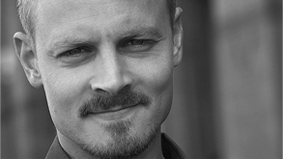Steve Jobs once said: “It’s rare that you see an artist in his thirties and forties able to really contribute something amazing”. Yet in his forties and beyond he went on to reinvent the music industry model, mobile phones, computers (again) and books.
When we think of entrepreneurs (and particularly tech entrepreneurs) we tend to think of young, restless agitators in their twenties. Y-Combinator have previously pegged the average age of their founders at 26. Mark Zuckerberg was 19 when he started Facebook. Bill Gates was 20 with Microsoft. Steve Jobs was 21, Max Levchin (Paypal) 23, Larry and Sergey 25, Jerry Yang 26, Chad Hurley 27. Fred Wilson once observed how unprecedented was the volume of younger entrepreneurs he was seeing (though at the time, the average age of those that they funded was older). Some have even suggested that (consumer internet) entrepreneurs are like athletes in that they peak around 25, or questioned whether 30 is too old these days to start a company.
Perhaps so-called ‘digital-natives’, unencumbered with legacy thinking and habits acquired from years in corporate-world, are at a natural advantage when it comes to the kind of digital thinking that disrupts markets and creates entirely new businesses. Perhaps having less responsibilities in earlier life really matters when it comes to risking your livelihood.
But then Niklas Zenstrom was 36 when he launched Skype. Chris deWolfe 36 with My Space. Reid Hoffman 35 with LinkedIn. Evan Williams the same age with Twitter. Mark Pincus was 41 when he launched Zynga. Arianna Huffington of the Huffington Post was 54. Research published a couple of years ago by the Kauffman Foundation showed that the number of company founders older than 50 was double the number of founders younger than 25, and the number of founders over the age of 60 was twice the number of founders under the age of 20. Data analysed by The Founder Institute indicated that older age correlated with more successful entrepreneurs (alongside three other traits: strong fluid intelligence, high openness, and moderate agreeableness) up to the age of 40, after which it had limited or no impact. They theorized that a combination of good project completion skills with real world experience helped older entrepreneurs “identify and address more realistic business opportunities”.
There may well be differences by sector of-course, but I do wonder if the combination of large numbers of older, experienced people losing their jobs, and the empowerment that technology brings is changing the ratios at all. I undoubtedly have something of a skewed personal perspective on this from doing my own thing for a couple of years now and over that time meeting significant numbers of people of all ages who are out there creating value with their ideas, talent and people that they know. But then, this should be something of an irrelevant question of-course. Restlessness is ageless. And age is a mindset after all.
Image courtesy
Original Post: http://neilperkin.typepad.com/only_dead_fish/2012/02/is-the-average-age-of-entrepreneurs-getting-older.html




